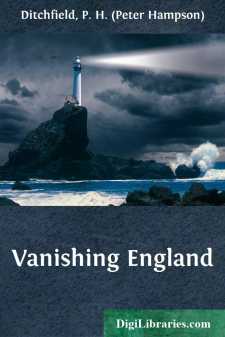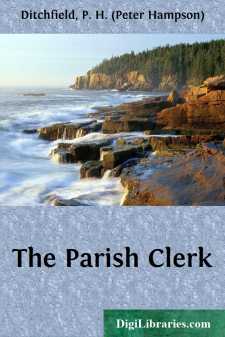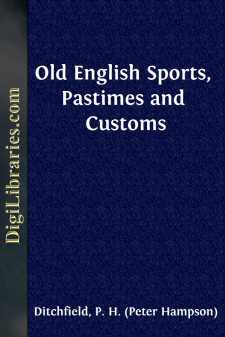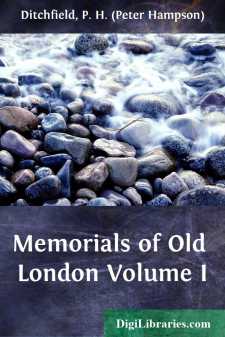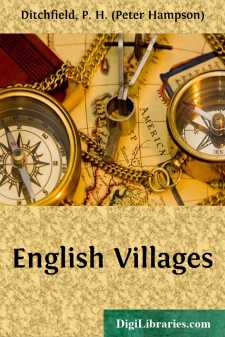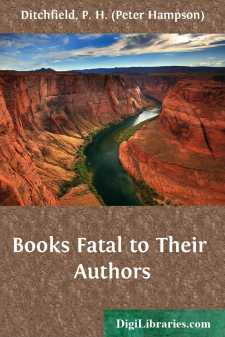Categories
- Antiques & Collectibles 13
- Architecture 36
- Art 48
- Bibles 22
- Biography & Autobiography 813
- Body, Mind & Spirit 142
- Business & Economics 28
- Children's Books 15
- Children's Fiction 12
- Computers 4
- Cooking 94
- Crafts & Hobbies 4
- Drama 346
- Education 46
- Family & Relationships 57
- Fiction 11828
- Games 19
- Gardening 17
- Health & Fitness 34
- History 1377
- House & Home 1
- Humor 147
- Juvenile Fiction 1873
- Juvenile Nonfiction 202
- Language Arts & Disciplines 88
- Law 16
- Literary Collections 686
- Literary Criticism 179
- Mathematics 13
- Medical 41
- Music 40
- Nature 179
- Non-Classifiable 1768
- Performing Arts 7
- Periodicals 1453
- Philosophy 64
- Photography 2
- Poetry 896
- Political Science 203
- Psychology 42
- Reference 154
- Religion 513
- Science 126
- Self-Help 84
- Social Science 81
- Sports & Recreation 34
- Study Aids 3
- Technology & Engineering 59
- Transportation 23
- Travel 463
- True Crime 29
P. H. (Peter Hampson) Ditchfield
Peter Hampson Ditchfield (1854–1930) was an English author and Church of England clergyman known for his prolific writing on historical and antiquarian subjects. He served as the rector of Barkham, Berkshire, and authored numerous books exploring English rural life, folklore, and church history. Among his notable works are "Old English Customs" and "The Parish Clerk," which reflect his deep interest in and knowledge of English cultural heritage.
Author's Books:
Sort by:
CHAPTER I INTRODUCTION This book is intended not to raise fears but to record facts. We wish to describe with pen and pencil those features of England which are gradually disappearing, and to preserve the memory of them. It may be said that we have begun our quest too late; that so much has already vanished that it is hardly worth while to record what is left. Although much has gone, there is still,...
more...
CHAPTER I OLD-TIME CHOIRS AND PARSONS A remarkable feature in the conduct of our modern ecclesiastical services is the disappearance and painless extinction of the old parish clerk who figured so prominently in the old-fashioned ritual dear to the hearts of our forefathers. The Oxford Movement has much to answer for! People who have scarcely passed the rubicon of middle life can recall the curious...
more...
CHAPTER I. JANUARY."Come then, come then, and let us bringUnto our pretty Twelfth-Tide King,Each one his several offering."Herrick'sStar Song. Dedication Festivals—New Year's Day—"Wassail"—Twelfth Night—"King of the Bean"—St. Distaff's Day—Plough Monday—Winter Games—Skating—Sword-dancing. N the old life of rural England few things are more...
more...
I.—Celtic London When we see the words "Celtic London" at the head of a chapter we naturally feel inclined to ask, "Was there such a place? Was there any Celtic London?" Although it is almost impossible to answer such a question by either "yes" or "no," it may be worth while to examine it briefly before passing on to the domains of authentic history. In the first...
more...
Eleven years ago my little book on the antiquities of English villages was published. Its object was to interest our rustic neighbours in their surroundings, to record the social life of the people at various times—their feasts and fairs, sports and pastimes, faiths and superstitions—and to describe the scenes which once took place in the fields and lanes they know so well. A friendly reviewer...
more...
To record the woes of authors and to discourse de libris fatalibus seems deliberately to court the displeasure of that fickle mistress who presides over the destinies of writers and their works. Fortune awaits the aspiring scribe with many wiles, and oft treats him sorely. If she enrich any, it is but to make them subject of her sport. If she raise others, it is but to pleasure herself with their...
more...


